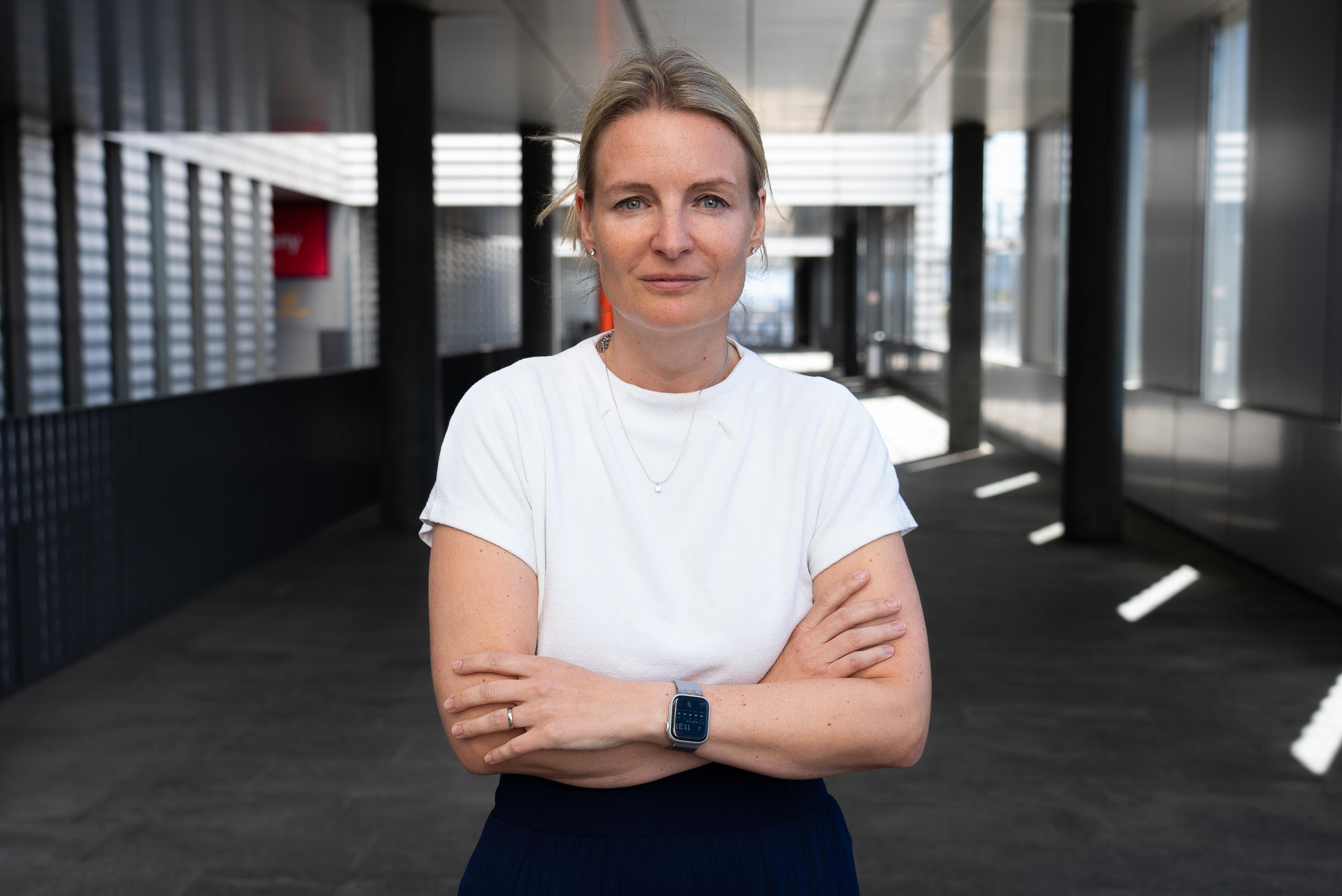
Sarah Lein highlights the selection challenge at the top of the SNB

Since the end of June, there has been a vacancy on the three-member governing body of the Swiss National Bank (SNB). Why is it taking so long to find a new person? The answer has to do with the SNB's organisation: It differs from the most important central banks abroad in one crucial respect.
The Supervisory Board of the SNB is desperately looking for a new member for the operational management of the central bank. Since the end of June, one of the three seats on the SNB Governing Board has been vacant. The search is on for a companion for President Thomas Jordan and Vice President Martin Schlegel.
One of the top candidates is Sarah Lein, Professor of Macroeconomics and Monetary Policy at the University of Basel. Her professional aptitude is undisputed, coming from outside the SNB and could challenge Jordan and Schlegel with new ways of thinking – and she is a woman. But she has one significant disadvantage: she is not from Latin (Italian or French speaking) Switzerland.
The example of Sarah Lein demonstrates how difficult it is to find a suitable person for the SNB Governing Board – and this has to do with the organisation of the SNB. With only three seats, the SNB’s Governing Board is very small by international standards. In London, nine people decide on the Bank of England’s monetary policy, at the United States Federal Reserve there are 12, and at the European Central Bank as many as 21.
Male dominated
At these central banks, it is therefore comparatively easy to include minorities in the governing body. Meanwhile, in Switzerland, one person must cover various (minority) characteristics – at least under the current set-up.
And the list of requirements is long. First, the new person must come from outside the SNB, as demanded, for example, by Basel macroeconomics professor Yvan Lengwiler of the SNB Observatory. Second, it had better not be a man, otherwise only men would be represented in the SNB’s top management once again – as was the case between its founding in 1907 and 2015 when Andrea M. Maechler, who has stepped down, became the first woman to be appointed to the SNB’s governing body.
Pressure for a gender balance at the top of the SNB is being exerted, for example, by a parliamentary question Social Democrat politician Céline Widmer.
Third, there is a strong will in Switzerland for representation from Latin Switzerland. In addition to the Swiss German-speaking Jordan and Schlegel, someone from Ticino or French-speaking Switzerland should be elected to the SNB Governing Board. The Federal Council, for example, has expressed similar sentiments.
Several candidates
Competent, from outside the SNB, not a man, and Italian or French speaking: can a single person possibly meet all these criteria? Suitable candidates would be Eftychia Fischer, currently Chair of the Board of Directors of the Vaud Cantonal Bank; Luisa Lambertini, currently Rector of the Università della Svizzera italiana in Lugano; and Sabine D’Amelio-Favez, Head of the Federal Finance Administration. None of these three people, however, has so far been selected.
And of the other top candidates – in addition to Sarah Lein, for example, Marlene Amstad, the President of the Financial Market Supervisory Authority, and Beatrice Weder di Mauro, a macroeconomics professor in Geneva – no-one has apparently accepted the position yet. But how problematic is the vacancy?
There are always vacant seats at the top of central banks abroad, especially in the US. In spring 2022, three seats on the Fed Board were vacant. That was 25% of all votes on the interest rate-setting body. Meanwhile, in Switzerland, with just one vacancy, 33% of the SNB governing body ‘brain power’ is missing. This makes the vacancy in Switzerland comparatively serious – and increases the pressure on the SNB Bank Council to nominate a new person soon.
In a first step, the SNB Bank Council, the SNB’s supervisory body, agrees on a suitable candidate for the attention of the Federal Council (government). The Federal Council then elects a new member to the SNB Governing Board. The Federal Council is free to make its own decision and is not bound by the Bank Council’s proposal. However, the Federal Council would have to justify any deviation from the proposed candidate as this would be an affront to the SNB. Parliament has no say in the matter.
Author Fabio Canetg holds a PhD in monetary policy from the University of Bern and the Toulouse School of Economics. Today, he teaches in an Economics Master’s program at the University of Neuchâtel, and is also a lecturer MAS at the University of Bern. As a journalist, he works mainly for Swiss Radio and Television (SRF) and swissinfo.ch. He hosts the monetary policy podcast “GeldcastExternal link” and the finance podcast “Börsenstrasse FünfzehnExternal link“.

In compliance with the JTI standards
More: SWI swissinfo.ch certified by the Journalism Trust Initiative































You can find an overview of ongoing debates with our journalists here . Please join us!
If you want to start a conversation about a topic raised in this article or want to report factual errors, email us at english@swissinfo.ch.